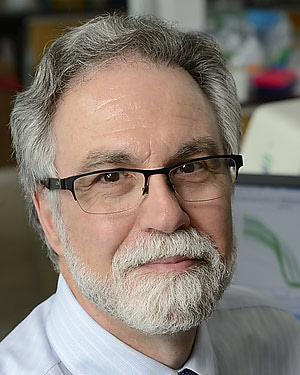Background
Dr. Gregg L. Semenza is a professor of genetic medicine, pediatrics, radiation oncology, and molecular radiation sciences, biological chemistry, medicine, and oncology at the Johns Hopkins University School of Medicine. Dr. Semenza is the C. Michael Armstrong Professor and serves as the director of the vascular program at the Institute for Cell Engineering.
One of today’s preeminent researchers on the molecular mechanisms of oxygen regulation, Dr. Semenza has led the field in uncovering how cells adapt to changing oxygen levels. He is best known for his ground-breaking discovery of the HIF-1 (hypoxia-inducible factor 1) protein, which controls changes in gene expression in response to changes in oxygen availability. The discovery of HIF-1 has far-reaching implications for understanding and treating conditions, such as cancer and ischemic cardiovascular disease, in which hypoxia plays an important role in disease pathogenesis.
Dr. Semenza was recognized for this groundbreaking research in 2019, when he was awarded the Nobel Prize in Physiology or Medicine with William G. Kaelin, Jr., M.D. of the Dana-Farber Cancer Institute, and Peter J. Ratcliffe of Oxford University.
Dr. Semenza received his A.B. from Harvard University. He earned M.D. and Ph.D. degrees from the University of Pennsylvania, completed residency training in pediatrics at Duke University Medical Center, and postdoctoral training in medical genetics at Johns Hopkins. Dr. Semenza joined the Johns Hopkins faculty in 1990.
Dr. Semenza’s research interests include investigating the molecular mechanisms of oxygen homeostasis; the role of HIF-1 in cancer and blinding eye diseases associated with ocular neovascularization; and the development of drugs that inhibit HIF-1 as a treatment for these disorders. His lab's research has been published in more than 400 research articles and book chapters, which have been cited more than 150,000 times.
Dr. Semenza is a founding fellow of the American College of Medical Genetics and was elected to the Association of American Physicians and the National Academy of Sciences in 2008. In 2012, Dr. Semenza was elected to the National Academy of Medicine. He has been recognized with numerous other awards, including the Lefoulon-Delalande Grand Prize from the Institut de France, Canada Gairdner International Award, Stanley J. Korsmeyer Award, E. Mead Johnson Award for Research in Pediatrics, Jean and Nicholas Leone Award from the Children's Brain Tumor Foundation, Established Investigator Award from the American Heart Association, Massry Prize, Wiley Prize in Biomedical Sciences, and the Albert Lasker Basic Medical Research Award. He serves as Deputy Editor of the Journal of Clinical Investigation.
